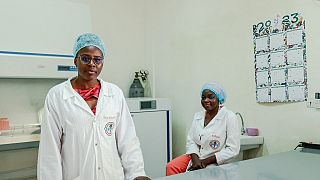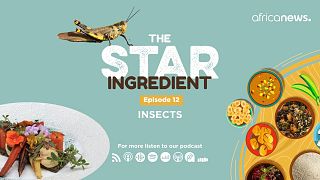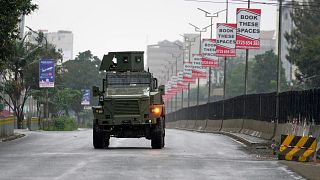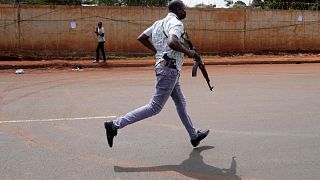Kenya
A Kenyan company is proving the saying: "one person's waste is another person's treasure," still rings true.
On a February morning, a group of women on a Mombasa beach pick up plastic waste that will serve to build freezers.
The waste is sold to company Kuza Freezer where employees first break it down into pellets before moulding it into cold storage units.
Each freezer comes with a battery that can be charged using a solar panel.
A two-hour charge means up to 7 hours of operating time.
"Kuza Freezer is a youth-led company based in Mombasa, Kenya. And we are focused on providing cold storage solutions to small-scale businesses in the fish value chain and enabling them to sustainably improve their income and reduce post-harvest losses," says Purity Gakuo, CEO Kuza Freezer.
Kuza Freezers has been running for three years and has delivered more than 350 machines to customers, including fish traders, poultry and milk vendors and ice salespeople.
Gakuo explains there are a variety of products being produced, from static freezers onboard fishing boats to ones that can be installed on a premises.
The team also produces a freezer that can be mounted to the back of a motorbike with a 70-litre capacity. It's especially helpful for the smooth delivery of fish.
The company offers free installation and training to customers.
They also fit a tracking device to each unit, so they check if repairs are needed.
The company sells the freezers for Ksh,100,000 ($700) and offer the option to pay in instalments.
For many customers, it is clearly money well spent.
Fighting pollution and hunger
Abdalla Ali and his colleague are bringing in their catch of the day before weighing and preparing the fish for delivery at a fish depot in Mombasa.
"We have a big challenge with storage," Ali explains.
"When we catch fish we don't have anywhere to store our fish. We put them in ice. Then, when transporting, we have problems because the ice decreases, the sun is also hot and this can ruin the fish and result in losses for us," he adds.
Nickson Otieno, the CEO of a Nairobi based, sustainability consulting firm explains the product's appeal and impact on two challenges Kenya faces.
"Number one is the issue of food security resulting from food losses.
Food losses come about because we produce food which are perishable, but then we do not have enough infrastructure to deliver that food to the end consumers in time while it is fresh," says Otieno.
"Secondly, we have a lot of issues of waste and especially plastic waste, which is choking our environment. By them taking up this waste, recycling it, and using it to make the external body of the freezers, also addresses the challenge of this waste," the CEO of Nikogreen concludes.












01:01
Kenya: Visa-free travel now available for many African and Caribbean countries
00:22
Boniface Kariuki, a Kenyan mask vendor shot at close range laid to rest
11:17
Bridging the legal gap in Africa’s digital boom {Business Africa}
Go to video
First Malaria treatment for babies approved
02:16
Kenya's William Ruto faces growing discontent over economy and police brutality
00:28
Nairobi hawker shot at close range by police declared brain dead